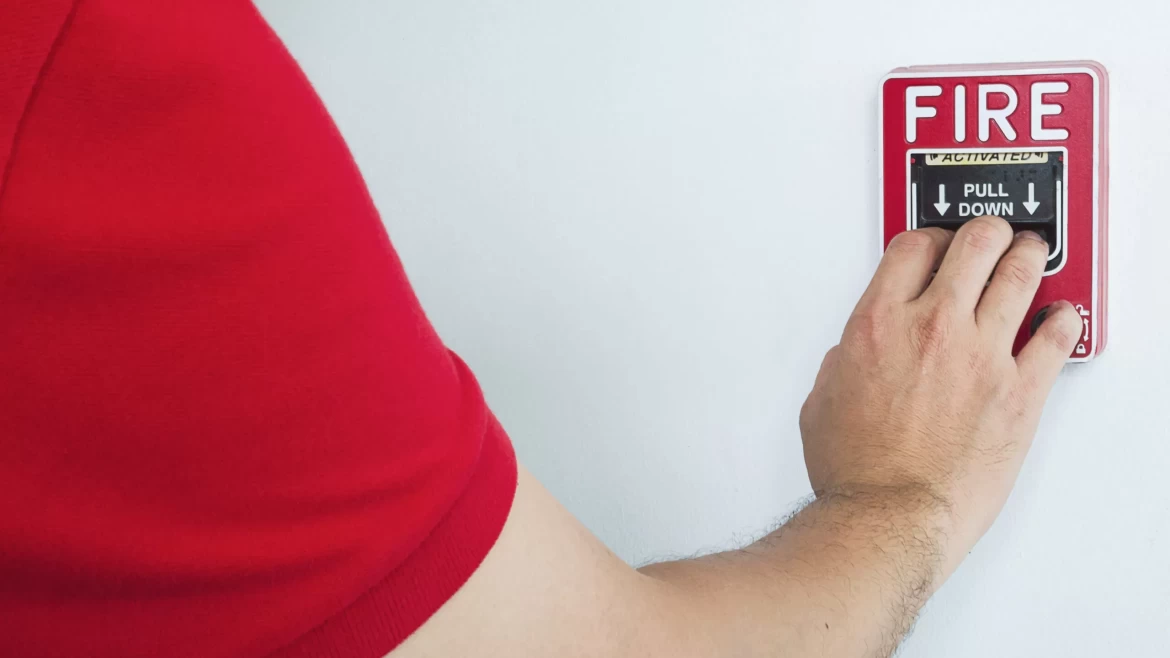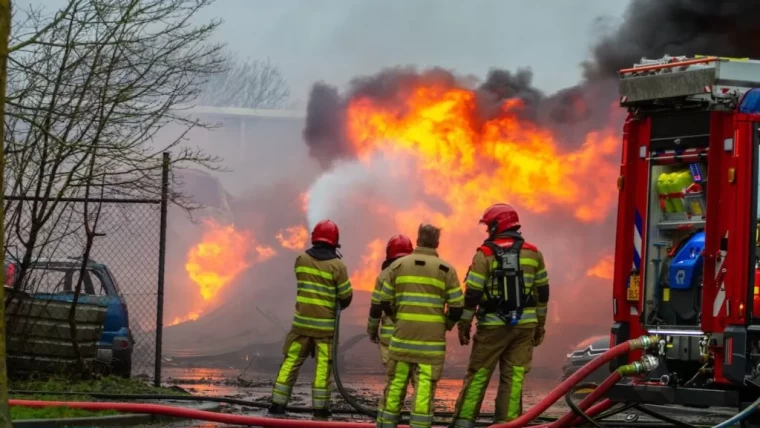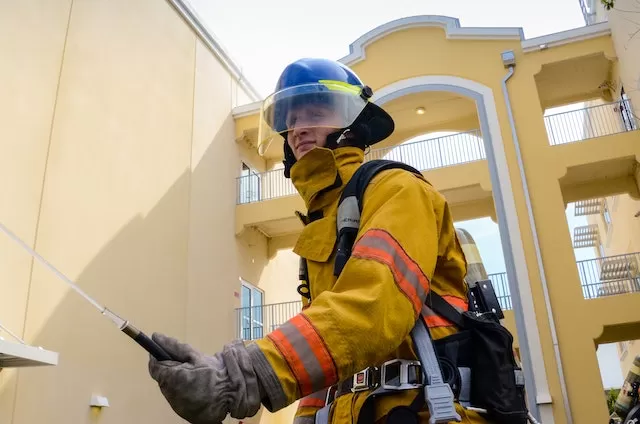No matter what type of business you own, you will be required to have a working fire alarm that meets fire code specifications, and you will be required to have your fire alarm inspected. Fire alarm inspections are simply part of operating a business. It is also in your interest to have a professional fire alarm inspection.
Having the fire alarm in place is only part of the program of protecting the occupants of the building and your property. Making sure the fire alarm continues to function properly is an ongoing part of fire alarm systems. A regular and official fire alarm inspection ensures that your fire alarm is operating properly.
Still, you may wonder what exactly goes into a fire alarm inspection. And it does help to know ahead of time what you might expect from a fire alarm inspection. Understanding the complexities of a fire alarm inspection gives you the information you need to properly operate and maintain your own fire alarm system.
What is a fire alarm inspection? Why is a fire alarm inspection important? And what are the specific requirements for a fire alarm inspection? This guide will give you some of the important information on fire alarm inspections.
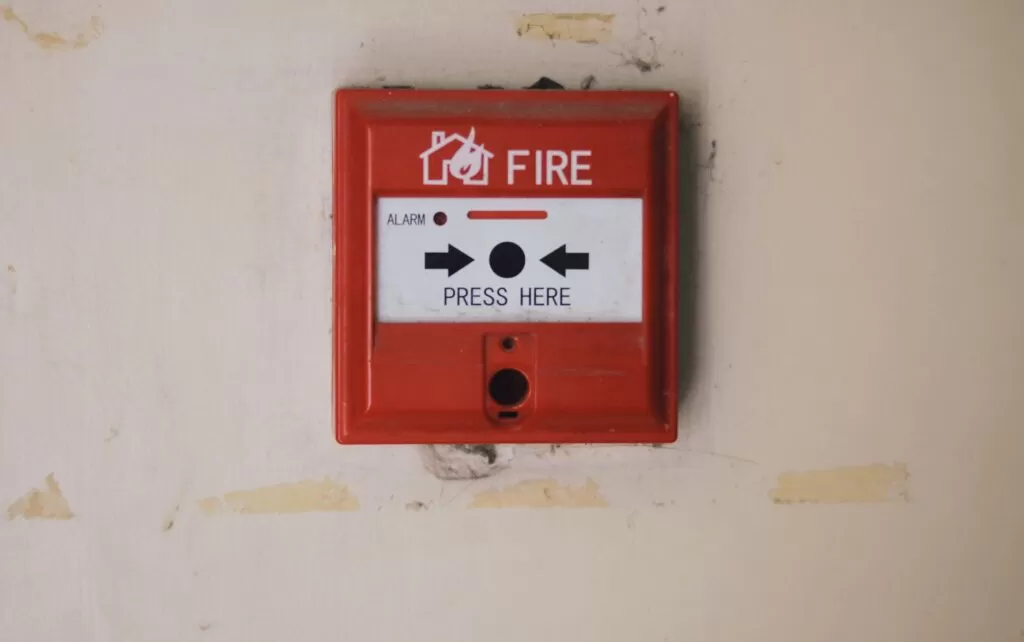
What is a Fire Alarm Inspection?
A common fire alarm inspection will have a technician come to your business and examine all the physical components of your fire alarm system. This will include smoke detectors, heat detectors, pull stations, and any other detection devices. They examine the control panel to ensure that all aspects of the system are functioning properly and fully charged. You will also be asked to designate someone to walk through the grounds with the technician to confirm the location of all equipment.
In the first part of the inspection, you will be asked to disable the control panel and put it into test mode. If you do not do this, the system will automatically contact the fire department. Your in-house representative will be responsible for disabling the system.
The next phase of the inspection will involve an examination and test of all the visual and audible components of the fire alarm system. This will necessarily involve triggering the system as if there was a fire. You will need to warn employees and others on the premises of the test so they do not react as if there were a real fire.
The last phase of the inspection will have the technician inspecting all pull stations and detection devices.
Why is Fire Alarm Inspection important?
Your fire alarm system is in place to protect people. A properly working fire alarm system ensures the occupants of your building get ample warning in the event of an emergency to take appropriate action and evacuate. A functioning fire alarm system also protects your property. To preserve your investment, you need to be able to take steps before a small problem becomes a catastrophe. A regulation fire alarm inspection makes certain that your fire alarm system is working exactly as it should.
Since a fire alarm system consists of many small parts, each with other small electronic connections that make the whole system work, it is easy for small features of the system to stop working correctly. This means the system itself can fail resulting in injuries, loss of life, and loss of your property. This is why you need a regular and professional fire alarm inspection.
Other reasons why a fire alarm inspection is important include:
- Testing is required (it is the law) by National Fire Alarm Code! (N.F.P.A. 72)
- Your insurance company, local municipality, Building Department, and/or Fire Department usually requires proof of inspection annually.
- Building occupants expect a fire alarm system to help offer them a safe environment.
- An impaired system increases your liability for claims by tenants, employees, customers, etc.
- Your insurance carrier could reject a claim if you do not have proof of annual inspections.
- Left ignored severe system impairments can lead to business interruption or closure by the authorities.
- Inspection and testing can offer the benefit of extending the manufacturer’s equipment warranty.
A fire alarm system, even a conventional fire alarm system, consists of many small and different parts. Each of these parts relies on different technology. It is essential that a trained professional inspect the entire system. You need someone who fully understands fire alarm system technologies.
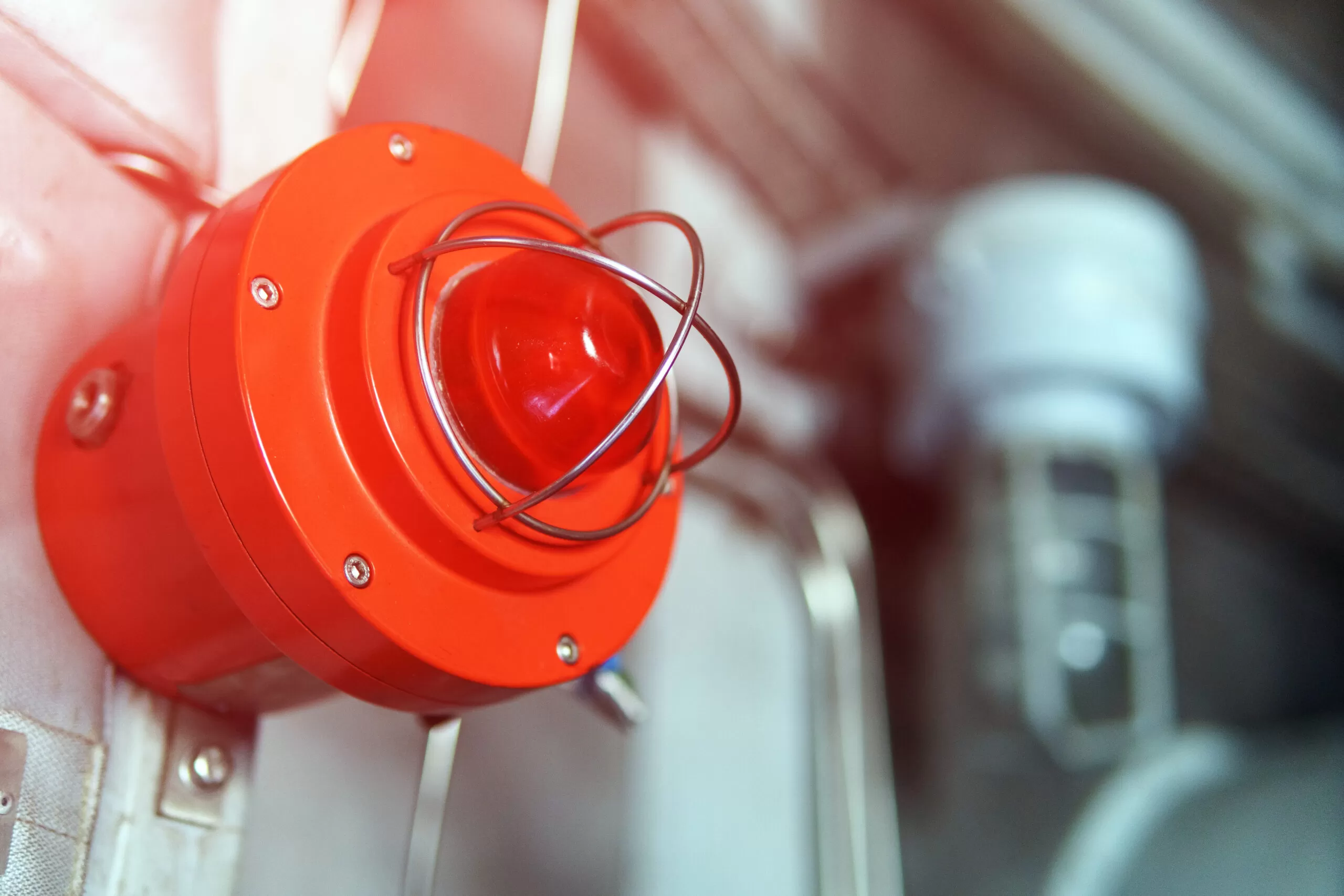
Fire Alarm Inspection Requirements
The first thing you should be aware of is that the National Fire Alarm Signaling Code (NFPA 72) provides a detailed list of all legally mandated requirements for fire alarm inspections. This is a detailed document, and it is legally mandated. You should familiarize yourself with these requirements. That the NFPA 72 is so detailed and involved and offers you a sound reason to have a qualified professional take care of your fire alarm inspections.
Specific local and state requirements for fire alarm inspections can vary, but NFPA 72 stipulates some general guidelines.
According to NFPA standards, your fire alarm system should be thoroughly inspected and tested weekly, monthly, quarterly semi-annually every five years, and every ten years. Some of these inspections can be done in-house by trained and qualified staff, but others need to be performed by a third party who is licensed to perform fire alarm inspections. This generally breaks down as:
In-house inspections: weekly, monthly, quarterly.
Licensed fire inspection technician: semi-annually, annually, every five years, and every ten years.
There is a checklist for in-house weekly, monthly, and quarterly fire alarm inspections. These inspections should follow these guidelines:
Weekly requirements:
General inspection of the control panel including fuses, interface equipment, lamps and LEDs, the main power supply, and all trouble signals on the control panel.
Monthly fire alarm inspection requirements:
This will involve an inspection of all batteries, checking for corrosion or leakage. Inspect the digital alarm communicator receiver (DACR). And inspections of all CO2 detection devices.
Quarterly fire alarm inspection requirements:
This inspection reviews the supervisory signaling devices. Test batteries in all central station facilities that rely on batteries. Test initiating and supervisory signaling devices. Test all off-site transmission equipment. Inspect water flow devices. If there are radiant energy detection devices, these must be thoroughly tested.
This is just an outline of the requirements for in-house fire alarm inspections. Again, consult the NFPA document for a detailed list of everything that should be included in weekly, monthly, and quarterly inspections.
More detailed inspections are required at other stages. These will require a licensed and trained technician to verify that all NFPA requirements are being met and verified. This is legally mandated, and your ability to continue operating your business depends on complying with these regulations.
A summary of a regulation fire alarm inspection consists of the following things:
Inspection: A full inspection in accordance with local fire codes and federal regulations that includes a visual inspection of all components, the control panel, all detection devices, annunciators, manual fire alarm boxes, and sounders.
Functional testing. Operation all system functions to make sure they are working correctly, including alarm initiation, alarm indication, and alarm transmission to the supervising station. These tests will verify that all devices are connected, all input-output circuits are functioning, and no new wiring is needed.
Signal strength testing The strength of all signals, both wireless and wired, need to be tested to make sure they meet with local and federal regulations.
Maintenance. Perform any regular maintenance of the system as needed. This includes detection devices, batteries, and wiring connections.
Documentation. Complete documentation and verification of every procedure need to be kept on file for future reference and inspection.
Fire Alarm Inspection Verification & Documentation
Business owners are required to keep all documentation and verification for fire alarm inspections. Items that should be verified and documented include:
Evidence of a complete visual inspection and functional testing of the fire alarm control panel and the power supplies (direct and backup batteries).
Visual inspection of remote power supplies if these are part of the system.
Load testing of the fire alarm system and power supplies.
Visual inspection and functional testing of automatic and manual alarm-initiating devices.
Visual inspection and functional testing of all alarms, both audible and visual.
Visual inspection and functional testing of emergency communications systems.
Testing and verification of alarm signals.
A checklist of the fire alarm testing components:
Control system and communication
Power supplies
Fire alarm control panel trouble signals
Digital alarm communicator
Digital alarm transmitter
Emergency communication equipment
Backup batteries and chargers
Initiation and notification devices
Fire extinguishers and fire suppression systems
Detection devices (Smoke detectors, fire/heat detectors, water pressure detectors, etc.)
All special hazard equipment
Fire Alarm Inspection FAQS
What is a Fire Alarm Inspection? A common fire alarm inspection will have a technician come to your business and examine all the physical components of your fire alarm system. This will include smoke detectors, heat detectors, pull stations, and any other detection devices. They examine the control panel to ensure that all aspects of the system are functioning properly and fully charged. You will also be asked to designate someone to walk through the grounds with the technician to confirm the location of all equipment.
Why is Fire Alarm Inspection important? Your fire alarm system is in place to protect people. A properly working fire alarm system ensures the occupants of your building get ample warning in the event of an emergency to take appropriate action and evacuate. A functioning fire alarm system also protects your property. To preserve your investment, you need to be able to take steps before a small problem becomes a catastrophe. A regulation fire alarm inspection makes certain that your fire alarm system is working exactly as it should.
What are the fire alarm inspection requirements? The first thing you should be aware of is that the National Fire Alarm Signaling Code (NFPA 72) provides a detailed list of all legally mandated requirements for fire alarm inspections. This is a detailed document, and it is legally mandated. You should familiarize yourself with these requirements. That the NFPA 72 is so detailed and involved and offers you a sound reason to have a qualified professional take care of your fire alarm inspections.
How often should fire alarm inspections be done? According to NFPA standards, your fire alarm system should be thoroughly inspected and tested weekly, monthly, quarterly semi-annually every five years, and every ten years. Some of these inspections can be done in-house by trained and qualified staff, but others need to be performed by a third party who is licensed to perform fire alarm inspections.
Why Circle Security Solutions?
For any business owner or property owner, a functioning and appropriate fire alarm system is a necessity. Fire alarm systems protect the safety and lives of occupants, and they protect your assets. The right kind of fire alarm system for your property prevents a small problem from becoming a catastrophic loss. These are the main reasons why you choose to install the best fire alarm system you can.
To make sure your fire alarm system is working properly, you will need to perform regular inspections and maintenance of the system. Regular and detailed fire alarm inspections are also required by law. The federal fire code and local fire codes require specific kinds of fire alarm inspections. These inspections are rigorously defined and codified, and they require an outside inspector to verify that your fire alarm system adheres to all regulations.
Since the safety of your building occupants and the integrity of your property depend on your fire alarm system, it simply makes sense to have qualified professionals perform your fire alarm inspections. A trained and licensed fire alarm inspector can ensure that you are in compliance with the law and that your building is safe.
Circle Security Solutions has trained staff that have a thorough knowledge of federal and local fire codes. Our professional staff can inspect your fire alarm system and provide all the verification and documentation these inspections require. Do not leave fire alarm inspections up to chance. Trust the professional security knowledge of Circle Security Solutions to perform your fire alarm inspections and make sure your building and building occupants and safe.

